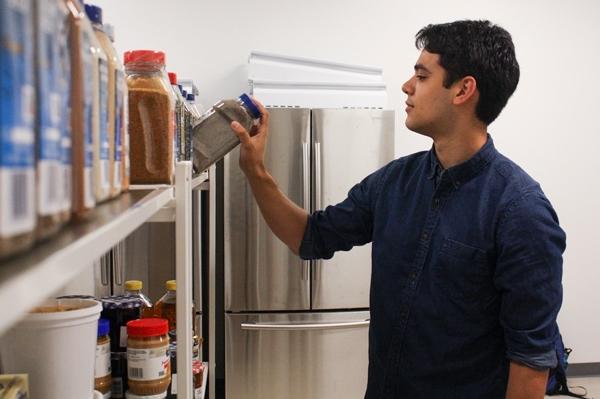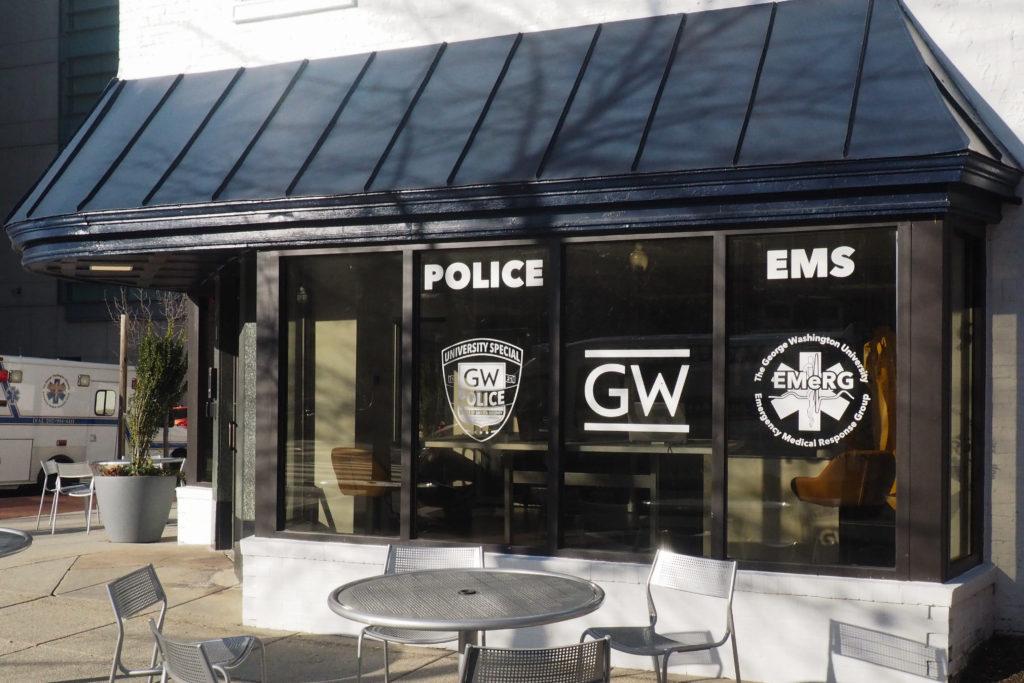Updated: Sept. 20, 2016 at 2:20 p.m.
A student-led food pantry will open on campus in a few weeks after months of planning.
On Oct. 1, GW will become one of the more than 300 universities that offer food banks to students. The Store, located in the basement of District House, will give students a chance to anonymously request food donations — a need officials and experts say is necessary on campuses.
Tim Miller, the associate dean of students, said he and others on campus first started discussing opening a food pantry on campus in February, when they noticed other pantries opening on college campuses and began exploring the option at GW.
“The whole thing came as this is the right thing to do for our students, and this is the right way for students helping other students, and that’s why we wanted to do it and why we think it will make a difference,” Miller said.
The pantry will partner with the Capital Area Food Bank to keep shelves stocked. GW will pay 19 cents per pound for the 12,000 pounds of food they receive from the food bank, and The Store will accept donations of grocery bags and lightly used kitchen supplies.
Two anonymous GW parents gave a four-year donation to the University to cover the initial costs of food and food transportation from the Capital Area Food Bank, according to a University release.
Students who want to use the pantry can fill out an online waiver to gain tap access to the area within District House.
The food pantry will be open from 6 a.m. until noon and then reopen at 2 p.m. until 2 a.m. Miller said the hours were set to allow more students to utilize the resources discreetly. Some food pantries at other institutions are maybe open 10 or fewer hours a week, which limits accessibility, he added.
“We want people to come whenever they want,” Miller said. “The focus is on the student and what is best for them, rather than what is most convenient for us.”
Miller said campus groups have already overwhelmingly supported the pantry by offering to voluntarily staff it.
At least 21 students have already said they are in need and want to use the resources, he added.
Responsibility for the pantry will be split among two organizations: GW Class Council will oversee recruiting and managing volunteers, and the Center for Student Engagement will be responsible for logistics and finances.
The idea for a food pantry was first publicly introduced in the spring when Class Council sent out an email survey to students asking about their interest or need for a pantry. Out of 720 responders, 44 percent of them said there was a time when they did not have enough to eat, and half of those students said they experienced that at least four times a semester.
Justin Archangel, the president of Class Council, said the food pantry should also educate other students about food insecurity on campus.
“We’ve had a number of volunteers already signing up to work shifts, and they think it’s a really great opportunity to do something for the students by the students that’s truly impacting the lives of the people on our campus,” Archangel said.
Experts say that GW’s response to food insecurity is echoing an effort on college campuses across the country.
Sara Goldrick-Rab, a GW alumna and a professor of higher education policy and sociology at Temple University, said many universities struggle to find programs to make sure students can eat.
“I didn’t expect students to say that there were days that they did not eat because they didn’t have enough money,” Goldrick-Rab said of her research about students’ affordability issues.
Goldrick-Rab said the high cost of living and eating in D.C. when she was a student forced her to consider universities’ responsibilities to their students.
With J Street closed for renovations and District House vendors yet to open, GW is currently without a main campus dining hall.
Goldrick-Rab said although food pantries are a step in the right direction, they are not a permanent solution to food insecurity.
“They will help to the extent to Band-Aids will help,” Goldrick-Rab said.
This post was updated to reflect the following correction:
The Hatchet incorrectly reported that The Store will accept food donations. The Store will accept kitchen supply donations. We regret this error.







